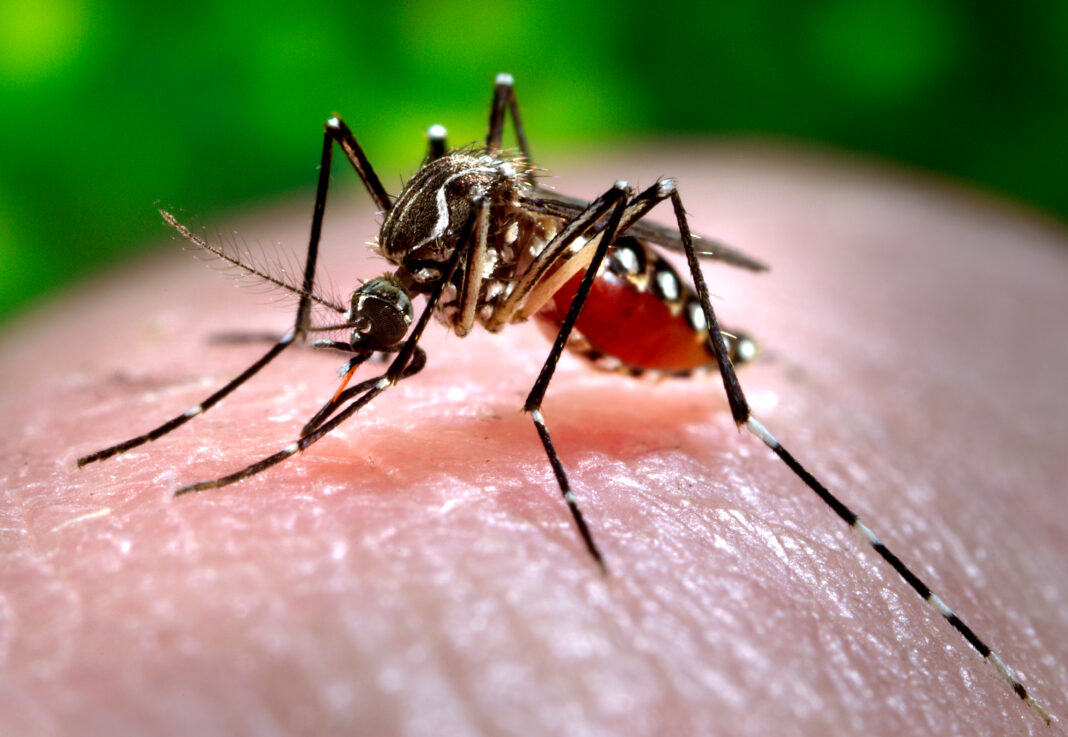Mosquitoes Learn to Avoid Pesticides Increasing Their Resistance to Chemical Controls
A research published yesterday in Scientific Report asserts that female Aedes aegypti and Culex quinquefasciastus mosquitoes learn to avoid pesticides to ensure survival and reproduction. These insects transmit diseases such as Malaria, Chikungunya, Dengue, Yellow fever, Zika, and West Nile fever to humans.
The authors report that following a single pesticide exposure, mosquitoes seem to smell chemicals with harmful effects and avoid contact. This finding highlights the importance of mosquito cognition as a crucial behavioral mechanism that can lessen the efficacy of pesticides.
Vector-borne diseases represent worldwide public health issues. According to the World Health Organization, 80% of the world’s population is at risk to get one or more of those diseases.
In this study, Sougoufara and collaborators focused on mosquitoes’ memory associative learning, and their behavioral plasticity— an overlooked area in pathogen transmitting mosquitoes.
“Understanding learning and memory is important for insects that transmit human diseases, because behavior such as host finding and blood-feeding have critical implications for their vectorial capacity and thus, disease
Transmission,” explains the scientific paper released by a scientific team from the U.K and Malaysia.
Studies show that pesticide resistance has increased among mosquitoes in recent decades. However, the most widely described mosquitoes’ pesticide resistance are metabolic, genetic, or cuticular (there is evidence about change on the mosquito cuticle -the external layer of its body – to decreased insecticide penetration) mechanisms.
Some early studies described mosquito resistance to pesticides as resulting from behavioral avoidance or deterrence, an innate ability of mosquitoes
to decrease insecticide exposure by moving away from treated areas. However, more studies about the extent to which this resistance is due to mosquito behavior are needed.
This laboratory-based new approach demonstrates that mosquitoes can learn to associate an olfactory or visual conditioning stimulus with a positive experience or reinforcing stimulus.
The experiment
The researchers exposed female mosquitoes to sub-lethal doses of five pesticide compounds. After subsequent exposure to the same pesticides, conditioned mosquitoes avoid forgoing blood-feeding to ensure survival. Additionally, resting site choice tests showed that pre-exposed females avoided the pesticides smell and decided to rest in a pesticide-free compartment.
“These females forewent blood-feeding for over 12 hours and many died unfed. Furthermore, in resting site choice assays, pre-exposed females displayed a strong preference for a resting site away from the smell of pesticides,” the scientific article remark.
On the other hand, less than 15 % of unconditioned females survive in the pesticide tunnel assay. Moreover, these mosquitoes were not significantly repelled by the smell of pesticide and used any compartment indiscriminately in the resting site choice test.
From the pre-exposed group, only 15.4% of A. aegypti and 12.1% of C. quinquefasciatus passed through the net with chemicals in order to feed. However, 57.7% of A. aegypti and 54.4% of C. quinquefasciatus that had not been pre-exposed, did pass.
The survival rate of pre-exposed mosquitoes was remarkably higher than that of non pre-exposed: 38.3% of A. aegypti and 32.1% of C. quinquefasciatus from the pre-exposed group, and 11.5% of A. aegypti and 12.9% C. quinquefasciatus from the non pre-exposed survived exposure to the pesticide-treated net.
As the article points out, when a first pesticide exposure is not lethal, surviving females smell the pesticides and systematically avoid them seeking safer blood-feeding and resting site opportunities. “It is noteworthy that sub-lethal exposures may be an extremely common situation for mosquitoes, particularly in vector populations that already possess multiple physiological pesticide resistance mechanisms.”
Pesticide avoidance learning behavior may maximize mosquitoes’ survival, making control interventions increasingly challenging in countries where vector-borne diseases are endemic.
Further studies are necessary to understand the extent to which pesticide avoidance learning contributes to the behavioral plasticity and changes observed in mosquito communities facing intense chemical control.
“Associative learning offers a new paradigm for re-evaluating complex patterns of repellency, pesticide deterrence and mosquito phenotypic plastic and evolutionary responses to pesticides that affect the impact of chemical control interventions beyond simple genetic resistance mechanisms,” researchers indicate.
As the paper suggests, a better understanding of mosquito cognition could be key to chemical control interventions, improving integrated pest management programs or designing novel vector control approaches that elude mosquito behavioral resistance.
References
- Seynabou Sougoufara, Hanna Yorkston‑Dives, Nurul Masyirah Aklee, Adanan Che Rus, Jaal Zairi & Frederic Tripet. (2022) Standardised bioassays reveal that mosquitoes learn to avoid compounds used in chemical vector control after a single sub-lethal exposure (2022)
- DOI 10.1038/s41598-022-05754-2.
- Chilaka, N., Perkins, E. & Tripet, F. (2012). Visual and olfactory associative learning in the malaria vector Anopheles gambiae sensu stricto.
- Malar. J. 11, 27
- Hemingway, J. & Ranson, H. (2000). Insecticide resistance in insect vectors of human disease. Annu. Rev. Entomol. 45, 371–391.
- Hemingway, J. et al. (2016). Averting a malaria disaster: Will insecticide resistance derail malaria control? The Lancet 387, 1785–1788.
- Liu, N. (2015). Insecticide resistance in mosquitoes: Impact, mechanisms, and research directions. Annu. Rev. Entomol. 60, 537–559.
- Wood, O., Hanrahan, S., Coetzee, M., Koekemoer, L. & Brooke, B. (2010). Cuticle thickening associated with pyrethroid resistance in the major malaria vector Anopheles funestus. Parasit Vectors 3, 67.





